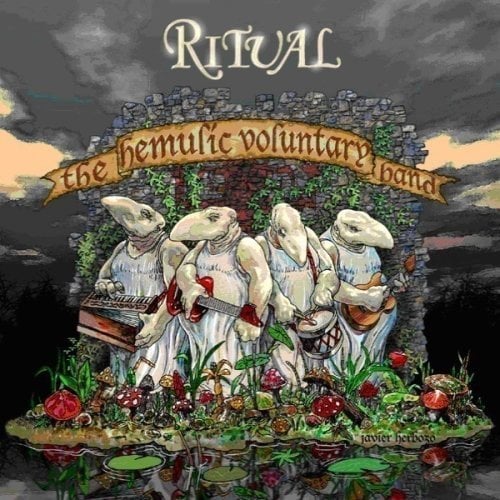Progarchives.com has always (since 2002) relied on banners ads to cover web hosting fees and all.
Please consider supporting us by giving monthly PayPal donations and help keep PA fast-loading and ad-free forever.
/PAlogo_v2.gif) |
Is Prog Underrated? |
Post Reply 
|
Page <1 34567 10> |
| Author | |||
SteveG 
Forum Senior Member 

Joined: April 11 2014 Location: Kyiv In Spirit Status: Offline Points: 20483 |
 Post Options Post Options
 Thanks(0) Thanks(0)
 Quote Quote  Reply Reply
 Posted: April 02 2018 at 12:55 Posted: April 02 2018 at 12:55 |
||
|
^ Come on, every other thread on PA is about something being underrated. So..
|
|||
|
This message was brought to you by a proud supporter of the Deep State.
|
|||
 |
|||
Blaqua 
Forum Senior Member 
Joined: June 06 2016 Location: Greece Status: Offline Points: 242 |
 Post Options Post Options
 Thanks(0) Thanks(0)
 Quote Quote  Reply Reply
 Posted: April 02 2018 at 13:18 Posted: April 02 2018 at 13:18 |
||
|
In the 70s it was definitely not underrated as masses had embraced
songs or/and albums by some prog rock bands. As regards prog rock's appeal to
the masses nowadays, I think quality music in general and not just prog is
underrated.
|
|||
 |
|||
Lewian 
Prog Reviewer 

Joined: August 09 2015 Location: Italy Status: Offline Points: 14103 |
 Post Options Post Options
 Thanks(0) Thanks(0)
 Quote Quote  Reply Reply
 Posted: April 02 2018 at 15:11 Posted: April 02 2018 at 15:11 |
||
|
Emotion and thinking are related in inseparable ways. Emotion can be complex and thought can be simple. Music aimed at thought or emotion only, disregarding the other, can never succeed.
The discourse on academic scrutiny and "fine art" itself is a cultural item quite devoid of emotion and as such probably inferior to all kinds of music including baroque, classic, prog, punk, hip hop, you name it. |
|||
 |
|||
ExittheLemming 
Forum Senior Member 

Joined: October 19 2007 Location: Penal Colony Status: Offline Points: 11415 |
 Post Options Post Options
 Thanks(0) Thanks(0)
 Quote Quote  Reply Reply
 Posted: April 03 2018 at 06:49 Posted: April 03 2018 at 06:49 |
||
That's not what's meant by 'formal academic scrutiny' which is certainly not just shorthand for emotion v thinking. It just denotes several thousand years of music theory and the emergent critical tools which are used to examine compositions as objectively as is practicable. It is not intended to provide demonstrable evidence that any particular music is objectively good or bad. Music criticism is never just an examination paper set by unfeeling and uncaring adjudicators hoping the composer will fail their test. (unless you're Ian Penman  ) )The only art than might be deemed to fail is that where nothing is communicated and neither thought or emotion is stirred within the listener. As long as the reaction engendered in the listener is not deemed sentimentally banal, manipulatively shallow, or pandering to the basest appetites of a target demographic who would clearly be complete strangers to a site like Prog Archives, we have a bona fide elitist smasheroonie on our hands guv'nor.  |
|||
 |
|||
Lewian 
Prog Reviewer 

Joined: August 09 2015 Location: Italy Status: Offline Points: 14103 |
 Post Options Post Options
 Thanks(0) Thanks(0)
 Quote Quote  Reply Reply
 Posted: April 03 2018 at 10:57 Posted: April 03 2018 at 10:57 |
||
I doubt that there's several thousand years of music theory that can be put together in any consistent line. OK, the Romans and old Chinese may have had some kind of music theory but this is hardly related at all to how music is assessed by academia today. (I'd be actually open and curious to evidence that proves me wrong here. Oh I actually remember some stuff that the Greeks had... but we don't know how their music sounded if I'm not mistaken.)
Fair enough. There's a lot of theory, too, that shows how strongly music perception is a result of cultural practices that are everything else than "objective". I'm certainly not against music criticism or rating (I write the occasional review here myself), and neither am I against aiming for a "scientific" approach, but it is of key importance, in my view, to keep in mind its limitations and the fundamental impossibility to reach what is normally understood as "objectivity" in this endeavour. What is this talk about "not standing up to academic scrutiny" other than to claim "demonstrable evidence that any particular music is objectively good or bad"? Edited by Lewian - April 03 2018 at 11:02 |
|||
 |
|||
ExittheLemming 
Forum Senior Member 

Joined: October 19 2007 Location: Penal Colony Status: Offline Points: 11415 |
 Post Options Post Options
 Thanks(0) Thanks(0)
 Quote Quote  Reply Reply
 Posted: April 04 2018 at 03:30 Posted: April 04 2018 at 03:30 |
||
|
Cultural practices may very well fashion much earlier historical music
but such elements of a 'ritualistic' or 'indigenous' nature are
completely outside an aesthetic evaluation of composition. Those strike
me as closer to ethnomusicology if anything else. Very generally speaking, re 'what constitutes academic scrutiny': Some of the elements that are found to be pleasing or satisfying to an incredibly wide ranging demographic over millennia are:
introduction - theme/exposition - development - recapitulation - coda Of course the above is really just sonata form broken into it's main discernible sections but the vast majority of musical works that continue to be celebrated as accomplished from all manner of genres and styles, contain most or at least several of the aforementioned building blocks. Practically all simple folk and pop tunes also obey these structures to the letter. Those pieces that are considered less successful and have not endured, are found to contain significantly fewer of these elements i.e. less people find them pleasing or satisfying but that doesn't necessarily mean they are objectively 'bad' That's also not to say that such structures are impervious to change or innovation but it takes a really long time (maybe THOUSANDS of years) for humans to let go completely of what they hitherto found satisfying in the arts. |
|||
 |
|||
Lewian 
Prog Reviewer 

Joined: August 09 2015 Location: Italy Status: Offline Points: 14103 |
 Post Options Post Options
 Thanks(0) Thanks(0)
 Quote Quote  Reply Reply
 Posted: April 04 2018 at 05:18 Posted: April 04 2018 at 05:18 |
||
|
I use the term "cultural practices" in a much more general way, so for example the western way of setting up a university system and academic culture is a cultural practice as well, as are conditions of musical performance, its role in education and the social setup of society etc. Globalisation may make us think that much of this is universal but in fact a lot can be traced to specific cultural origins and has become widespread not so much because of its universal qualities but rather because of economical and power relations and the like.
Speaking of "indigeneous" or "ritualistic" practices, I also think that it is important for understanding music how it originated from such practices in many places (this seems to me more universal than the structural elements you are referring to although for the moment I'm talking about my intuition rather than a solid knowledge of the literature and research). I think this is still reflected in much contemporary "use" of music (surely it plays an important role for rock music), and I think if you want to rule such elements out for "an aesthetic evaluation of composition", this evaluation loses some key aspects of music. Discussing structure like "introduction - theme/exposition - development - recapitulation - coda" is certainly an important part of "academic scrutiny" of music but the role this plays in trying to make up an "objective" concept of quality is less straightforward. Groundbreaking music (including music that is academically acknowledged as such) sometimes proceeds just by destroying or changing such structures; and surely music that satisfies such a blueprint all too easily is easily dismissed as derivative (unless it has other qualitiues that makes it stand out). |
|||
 |
|||
ExittheLemming 
Forum Senior Member 

Joined: October 19 2007 Location: Penal Colony Status: Offline Points: 11415 |
 Post Options Post Options
 Thanks(0) Thanks(0)
 Quote Quote  Reply Reply
 Posted: April 04 2018 at 07:52 Posted: April 04 2018 at 07:52 |
||
|
|||
 |
|||
miamiscot 
Forum Senior Member 

Joined: April 23 2014 Location: Ohio Status: Offline Points: 3418 |
 Post Options Post Options
 Thanks(0) Thanks(0)
 Quote Quote  Reply Reply
 Posted: April 04 2018 at 08:35 Posted: April 04 2018 at 08:35 |
||
|
Underrated by most.
Overrated by most on here.
|
|||
 |
|||
moshkito 
Forum Senior Member 
Joined: January 04 2007 Location: Grok City Status: Offline Points: 16148 |
 Post Options Post Options
 Thanks(0) Thanks(0)
 Quote Quote  Reply Reply
 Posted: April 04 2018 at 09:25 Posted: April 04 2018 at 09:25 |
||
Yes, Daffy Duck! Wabbitt Season!
|
|||
|
Music is not just for listening ... it is for LIVING ... you got to feel it to know what's it about! Not being told!
www.pedrosena.com |
|||
 |
|||
dr wu23 
Forum Senior Member 

Joined: August 22 2010 Location: Indiana Status: Offline Points: 20451 |
 Post Options Post Options
 Thanks(0) Thanks(0)
 Quote Quote  Reply Reply
 Posted: April 04 2018 at 10:12 Posted: April 04 2018 at 10:12 |
||
 |
|||
|
One does nothing yet nothing is left undone.
Haquin |
|||
 |
|||
Lewian 
Prog Reviewer 

Joined: August 09 2015 Location: Italy Status: Offline Points: 14103 |
 Post Options Post Options
 Thanks(0) Thanks(0)
 Quote Quote  Reply Reply
 Posted: April 05 2018 at 07:46 Posted: April 05 2018 at 07:46 |
||
I disagree but ultimately this is a matter of scientific thought and empirical observation; without these we may just believe the different things we want to believe without any possibility to get to agreement. You may have a look at this, by Pierre Bourdieu: http://scholar.google.co.uk/scholar_url?url=http://www.academia.edu/download/36960054/Distinction_A_Social_Critque_Of_The_Judgement_Of_Taste_By_Pierre_Bourdieu.pdf&hl=en&sa=X&scisig=AAGBfm0l1BqqZHDCkPf8kw-liW3oigF9cA&nossl=1&oi=scholarr&ved=0ahUKEwjpxqXznaPaAhViGsAKHRb7BawQgAMIMCgAMAA
We can discuss about how important such structure is to music perception and appreciation in general, and how widespread its use, but that's entirely different from using it for the "evaluation" of specific works. Even using a certain "academic" tradition of evaluation (with which I wouldn't necessarily agree), any level of quality is achievable by any level of compliance or noncompliance with such structural principles. This is simply not what counts (or let's say it counts a tiny little bit at most). But then I'm perfectly fine using it in analytic ways, for understanding rather than for assigning value. |
|||
 |
|||
ExittheLemming 
Forum Senior Member 

Joined: October 19 2007 Location: Penal Colony Status: Offline Points: 11415 |
 Post Options Post Options
 Thanks(0) Thanks(0)
 Quote Quote  Reply Reply
 Posted: April 05 2018 at 08:47 Posted: April 05 2018 at 08:47 |
||
What does 'scientific thought' and 'empiricism' have to do with what has been observed over millennia to be what the vast swathes of humankind readily avow they find satisfying in art? The statement 'Any level of quality is achievable by any level of compliance or non-compliance' is something that plankton might choose to have us believe they choose their dinner partners  Edited by ExittheLemming - April 05 2018 at 08:48 |
|||
 |
|||
moshkito 
Forum Senior Member 
Joined: January 04 2007 Location: Grok City Status: Offline Points: 16148 |
 Post Options Post Options
 Thanks(0) Thanks(0)
 Quote Quote  Reply Reply
 Posted: April 05 2018 at 09:05 Posted: April 05 2018 at 09:05 |
||
|
Hi, I think we forget that "structure" is something that is academically developed (sometimes) as a way to define something. Thus a piece of music having this and that, is almost the same thing as saying that there is no doubt that a new piece, that is trying to change the well known patterns, will be totally different, even if just setup backwards. Creativity, normally, means that the current standard and design and format, is not satisfying for that composer/group, and those are the INNOVATORS of our time. Are they underrated, or overrated is a complete other story, and the only way we can evaluate that is by thinking that public sentiment is what defines its "value" ... which we know is not a good thing, since so many composers in the history of music have gotten totally thrashed for the work they did, only to be appreciated enormously 50 years after they left us. I, personally, think that this is better looked at as a history. And as the example on another thread, the group was NOT overrated THEN, but today, with all this internet and groups everywhere, half the folks at PA would probably think it was overrated and pompous. The only thing that was pompous, THEN, was the rock press that liked to think they were more important than the art itself, and tried to create events and social changes with music that was not even honest to the core about what it was doing. Well, sadly, even YES and Jon Anderson were not as spiritual inclined as they were making out to be, and tried throwing it all under the bus with RELAYER, and instead ended up with dead meat of an elephant that too many folks disliked! But guess what ... the format! It was now a familiar format, which TFTO was NOT at all, so in essence they went backwards! A lot of the material that we love today and consider the top of the best stuff was NOT overrated ... but I can tell you that if ITCOTCK was released this morning, that half the folks in PA would trash it, and think it's just crap and has so much "noodling" and has no consistency whatsoever as an album for the fans to enjoy. These thoughts, would not even be talking about the "music" ... just comparing the songs to their "favorite" metal and thrash and formats that they know. Even today, only "Epitath" might be considered "conventional", and even then it's like pushing the idea of the format! So, yeah, fans today, not understanding the time it was born, would say it was overrated, but yesterday, in the late 60's when you and I heard this ... it was more than an anthem. It was a guide for a lifetime of fantastic music and artistic work, and believe you me, I for one have appreciated that since then! I think some other folks here do too!
|
|||
|
Music is not just for listening ... it is for LIVING ... you got to feel it to know what's it about! Not being told!
www.pedrosena.com |
|||
 |
|||
Lewian 
Prog Reviewer 

Joined: August 09 2015 Location: Italy Status: Offline Points: 14103 |
 Post Options Post Options
 Thanks(0) Thanks(0)
 Quote Quote  Reply Reply
 Posted: April 05 2018 at 09:06 Posted: April 05 2018 at 09:06 |
||
Well this is actually an empirical statement, isn't it? I'm not sure to what extent this holds and I'd be very surprised if you were. To me it looks like a statement of your subjective belief, nothing more. Which is fine of course except that you wanted to make the case for objectivity here if I'm not mistaken.
And yet it may be true, and verifiably true, in the sense that you can specify a reasonable set of rules and I (or a music scientist who's more knowledgeable than me) can show you a piece that disregards any number of them and is still held in highest esteem. (John Cage's 4'33'' may do the trick for many of these games but even without that I'm pretty sure it can be done.) |
|||
 |
|||
ExittheLemming 
Forum Senior Member 

Joined: October 19 2007 Location: Penal Colony Status: Offline Points: 11415 |
 Post Options Post Options
 Thanks(0) Thanks(0)
 Quote Quote  Reply Reply
 Posted: April 05 2018 at 09:44 Posted: April 05 2018 at 09:44 |
||
There is no such thing as a 'music scientist' (as if someone is qualified to prescribe your emotional responses to music are 'wrong') You and I have ears and a brain, so both us are more than qualified to evaluate music. The Cage piece was an exercise in conceptual art i.e a demonstration of the impossibility of the idea of 'silence' As to what that has to do with an evaluation of musical composition is probably best known and kept to yourself. |
|||
 |
|||
Lewian 
Prog Reviewer 

Joined: August 09 2015 Location: Italy Status: Offline Points: 14103 |
 Post Options Post Options
 Thanks(0) Thanks(0)
 Quote Quote  Reply Reply
 Posted: April 05 2018 at 15:13 Posted: April 05 2018 at 15:13 |
||
|
ExittheLemming: I think you're getting me quite a bit wrong here. I was bringing in the music scientist or musicologist or whatever as someone who may have a better overview of stuff and may be well informed what in academic circles (which were originally not brought up by me in this discussion) is highly appreciated, certainly not as somebody who has a licence to prescribe right or wrong responses. That's not my line of argument here; ascribing relevance to what can or cannot stand up to academic scrutiny was where you were coming from if I remember it right.
|
|||
 |
|||
ExittheLemming 
Forum Senior Member 

Joined: October 19 2007 Location: Penal Colony Status: Offline Points: 11415 |
 Post Options Post Options
 Thanks(0) Thanks(0)
 Quote Quote  Reply Reply
 Posted: April 06 2018 at 02:16 Posted: April 06 2018 at 02:16 |
||
If by 'music scientist' you mean someone who is qualified to teach or lecture about music at tertiary level, I can't help you there as I'm neither trained or qualified in music save the entry level standard issue 'two ears and a brain' I mentioned earlier. I guess that type of insight would need to come from a professor of a faculty of Music. There might even be one traipsing around on Prog Archives as we speak  I know that neither of us is conflating highly regarded with popular and as an aside, George Bernard Shaw was right: Those who can do, those who can't: teach. Or alternatively, write completely humorless treatises on what qualitative criteria they believe all music should be measured (neither us believe that approach is legit) Spoiler alert - these tomes are drier than a legionnaires socks but probably contain what most people denote by 'formal academic scrutiny' Lawrence Kramer 'Why Classical Music Still Matters' - this critical musicologist (and composer) pitches into your camp with a hermeneutic model encompassing cultural practices, performance and media formats which he posits is inclusive of all conceivable genres. How surprised would you be to learn that I thought the whole thing 'post-modern w**kspeak?'  Julian Johnson 'Who Needs Classical Music?' - (Prof. of Music, Royal Holloway University of London) takes a scalpel to the fondant mood music of Reich, Glass, Nyman et al and deems similar minimalist contemporary developments as 'inimical to thought' and a 'commodification of deliberate depthlessness'. He maintains that conventional academic scrutiny is an antidote to the 'value-free relativism of the marketplace'. Not a happy camper throughout but very well written Roger Scruton 'The Aesthetics of Music' - is actually quite enjoyable as this English professor of aesthetics gets incredibly angry in places  and the end part is him pulverizing popular music (quite indiscriminately)
to a bloody pulp. An archly conservative view on the metaphysics of
sound and the primordial demarcation between tone and sound (like the cavemen I alluded to earlier). Scruton holds
particular disdain for what he feels is the reckless abandonment of tonality initiated by the 2nd
Viennese school (Schoenberg, Berg and Webern) and holds firm to the view
that traditional analytical criteria are not rendered obsolete by
contemporary developments in composition
and the end part is him pulverizing popular music (quite indiscriminately)
to a bloody pulp. An archly conservative view on the metaphysics of
sound and the primordial demarcation between tone and sound (like the cavemen I alluded to earlier). Scruton holds
particular disdain for what he feels is the reckless abandonment of tonality initiated by the 2nd
Viennese school (Schoenberg, Berg and Webern) and holds firm to the view
that traditional analytical criteria are not rendered obsolete by
contemporary developments in compositionIt might be a self fulfilling prophecy of course, but I couldn't find any examples of anyone from 'musical academia' arguing completely the opposite i.e. that conventional 'formal academic scrutiny' could be proven to be completely spurious and had no longer any vestigial value for the analysis and comprehension of composition. (Although Lawrence Kramer, somewhat the outlier, comes pretty close in places) Not sure how much further we can take this discussion but you now have three accredited sources of 'formal academic scrutiny' to choose from. The rest is up to you. Edited by ExittheLemming - April 06 2018 at 14:50 |
|||
 |
|||
Lewian 
Prog Reviewer 

Joined: August 09 2015 Location: Italy Status: Offline Points: 14103 |
 Post Options Post Options
 Thanks(0) Thanks(0)
 Quote Quote  Reply Reply
 Posted: April 06 2018 at 18:52 Posted: April 06 2018 at 18:52 |
||
|
ExittheLemming: Certainly an interesting discussion although now I feel less clear about what your position actually is than before, particularly about how much relevance you ascribe to "academic scrutiny". In any case, I don't know the books you're recommending but you did a good job giving me an idea of what's in them and how they are relevant to this discussion.
...and that wouldn't be my position either. This may be difficult to understand or to stomach about what I'm thinking (or I may not have explained it well). I actually think that insightful analysis of music (academic or not, but surely you find some of it in academia) is very worthwhile, for comprehension, for inspiration, for widening the view. What I do *NOT* think is that any of it can correctly claim to have universal validity, but neither do I believe that its value depends on that. And neither do I think that its main business is to "measure", to assign higher or lower rating to works. Doing insightful valuable analysis of music in my view is almost orthogonal to the "rating" business; whether certain works do or do not "stand up to" academic scrutiny is a discussion that is very marginal to elaborating the qualities, effects and workings of music in ways that could teach listeners and musicians something helpful and inspiring. Of course criticism and rating can be part of such analysis and as you rightly illustrate, academic musicology is full of it. But then you will find much disagreement there (particularly, but certainly not exclusively regarding some notorious 20th century work, be it by Schoenberg, Cage, Glass, Miles Davis or the Beatles), and I can't help thinking that the idea that in such cases one is "objectively right" and another one is "wrong" is rather ridiculous, and the real "beef", the real value to human culture of such analyses doesn't come from the measurement at all. You may smell some relativism in what I write and rightly so, I'm not convinced by the case for universal aesthetics (or if at all, then at such a low and elementary level that it hardly serves to set up any more sophisticated measurement). If you go into the literature, it's like discussing controversial music - some make the universalist case and some don't buy it... the literature is not going to decide this for us, we have to make our choices and I make a different one from yours, but of course presenting this as a "choice" with no ultimate objective truth behind it means that I have already framed it in the way I'm thinking. In any case, this is why I think that the concept of "over/underrating" is generally quite misleading. It suggests that there is some "true" rating out there that a "correct" rater could match and others could get wrong. But I think that all ratings and all references for them are made by people and differently made by different people. Claiming that something is over- or underrated means saying that "most get this wrong but I get it right" and there's no authority out there that will rubber-stamp such a claim, not even those whose title may suggest their authority. But then I still claim that what these people say is of some use and value - just that this is quite independent of and detached from the "measurement" aspect. |
|||
 |
|||
Lewian 
Prog Reviewer 

Joined: August 09 2015 Location: Italy Status: Offline Points: 14103 |
 Post Options Post Options
 Thanks(0) Thanks(0)
 Quote Quote  Reply Reply
 Posted: April 06 2018 at 19:27 Posted: April 06 2018 at 19:27 |
||
|
Prog started in the second half of the 20th century and as such it was from its beginning surrounded by postmodern ideas on aesthetic, particularly the idea that the modern ideal of originality and progress may have run its course already, basically everything has already been invented and we can now only recombine and comment rather than create something truly new. With this of course came the fundamental uncertainly about values and the relativist tendencies to which I (at least partly) adhere.
This is quite manifest in Prog, the first innovations of which were about "re-combination" of ideas, rock and classical composition, rock and free improvisation, and then (still more connected to modern ideals) technological innovation combined with futuristic/SF aesthetic ideas. Then the willingness of many of the main protagonists by the end of the 1970s to leave their earlier achievements behind and try some new re-combination, together with the ever growing influence of markets and commercialisation; w8ith an emergence, in parallel, of some artists who rather tried to conserve and develop approaches that at the age of just 10-15 years were too young, in their view, to be already left behind. In all this one can see, in my view, a fundamental insecurity about aesthetic value, which is actually quite typical for the time, which comes with its own aesthetic quality or interest. Personally I rate those artists highest who could steer through these developments in a confident and unmistakably personal and unique way. Firstly Can (including the solo work that followed the end of the band, I didn't choose my avatar for nothing). Czukay and Schmidt in particular as students of Stockhausen even had an academic music background (and Liebezeit was an established jazz drummer when Can started) and used this, and an insatiable curiosity for all kinds of music and sounds from all over the world, to produce their very own rich mix of influences, with a strong element of spontaneity, wilful primitivity and allusion to deep hypnotic and ritualistic roots of music, without ever standing still. In similar ways, although with very different results, Robert Fripp and King Crimson also created their very own sound and updated it continuously with new influences, particularly wide open to seamless integration of whatever new band members would bring in. Further examples are Magma and Art Zoyd; these and a handfull of other artists managed to put down so strong roots that they never lost their orientation when integrating new influences and "going with the time", but on the other hand their hearts, brains and particularly ears were always open enough to the big world of sound (and everything else) that they never stood still and managed to produce something fresh over four decades and more. Of course I don't want to dispute the role of other prog heroes such as Yes, Pink Floyd or ELP at particular times, and chances are that in 100 years these will still be better known than more obscure artists such as Art Zoyd. Who survives in public perception is not a matter of quality alone and achieving 5-10 years of greatness combined with popularity will give an artists better chances to be remembered than four decades of flying confidently under the radar, but still, I'd expect that whoever rediscovers the work of Can, King Crimson, Magma or Art Zoyd in whatever time on whatever strange paths of music interest will be thoroughly amazed. Which of course is just my subjective opinion. Edited by Lewian - April 06 2018 at 19:27 |
|||
 |
|||
Post Reply 
|
Page <1 34567 10> |
| Forum Jump | Forum Permissions  You cannot post new topics in this forum You cannot reply to topics in this forum You cannot delete your posts in this forum You cannot edit your posts in this forum You cannot create polls in this forum You cannot vote in polls in this forum |